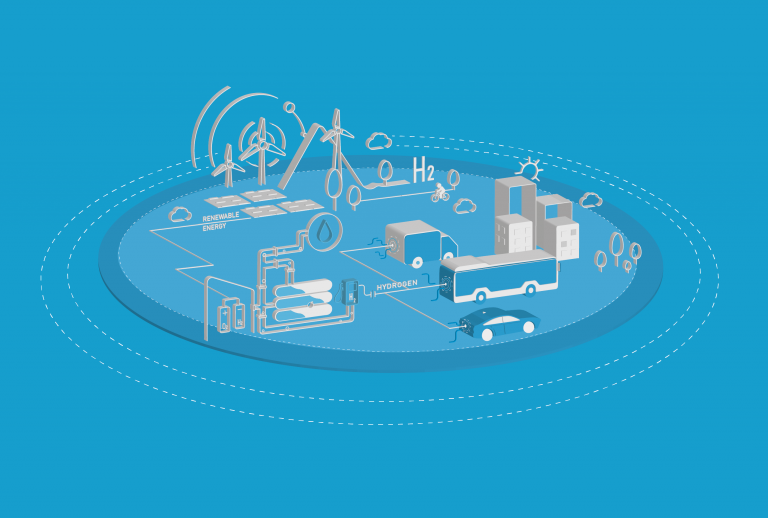Toyota, Air Liquide and CaetanoBus join forces to accelerate the development of hydrogen mobility in Europe
- Memorandum of Understanding signed by Toyota Motor Europe, Air Liquide and CaetanoBus for the expansion of hydrogen mobility
- Agreement aims for closer cooperation in developing opportunities for hydrogen mobility projects in several European countries
- Objective is to collaborate to create integrated ecosystems where both hydrogen supply and vehicle demand are provided simultaneously
Air Liquide, CaetanoBus and Toyota Motor Europe have signed a memorandum of understanding with the aim of developing integrated hydrogen solutions. Joint projects will explore infrastructure development and the use of vehicle fleets to accelerate the expansion of hydrogen mobility for both light and heavy-duty vehicles. The partnership reflects the shared ambition of the three partners to contribute to the decarbonisation of transport and accelerate the development of local hydrogen ecosystems for multiple mobility applications.
The three companies will use their complementary expertise to address the entire value chain of hydrogen mobility, ranging from renewable or low-carbon hydrogen production, distribution and refuelling infrastructure, to the deployment across different vehicle segments. Initially the focus will be on buses, light commercial vehicles and cars, with a further aim to accelerate the heavy-duty truck segment.
By exploring joint opportunities, the three major players in hydrogen mobility will contribute to the emergence of new hydrogen ecosystems across Europe – a key step towards stimulating demand and facilitating hydrogen access for mobility applications. This includes the infrastructure of refuelling stations, as well as integrated vehicle supply offers (leasing and service) to customers such as taxi companies, fleet operators, local authorities, and others. The integration of different applications and projects within a hydrogen ecosystem, where supply and demand meet, is intended to create a virtuous circle enabling the overall hydrogen infrastructure to further mature. This initiative represents another step along the path of decarbonisation, which is consistent with the stronger focus from European governments and the readiness of hydrogen technologies.
Matthieu Giard, Vice President, member of the Executive Committee of Air Liquide, notably supervising Hydrogen activities said: “As a key solution to reduce CO2 emissions of the mobility sector, low-carbon hydrogen is a crucial enabler of the energy transition. Air Liquide is pleased to partner with Toyota and CaetanoBus. Such partnerships are essential to create efficient ecosystems that will foster the emergence of hydrogen mobility in Europe. Air Liquide has been committed for more than 50 years to develop the entire hydrogen value chain and will bring its expertise in both the production of low-carbon hydrogen and the development of hydrogen mobility infrastructures. This partnership illustrates the capacity of the industry to bring concrete solutions to the fight against climate change.”
Matt Harrison, President and CEO at Toyota Motor Europe, comments: “We are excited by the opportunity to combine our strengths to expand the development of hydrogen clusters. Toyota’s role is to bring the hydrogen applications into the ecosystem and, by working together with our partners, we want to accelerate and intensify the use of hydrogen as a carbon neutral solution for mobility. This will gradually reduce the costs of hydrogen and its infrastructure while improving the business case for many future applications including mobility.”
Patrícia Vasconcelos, CEO of CaetanoBus, adds: “It is a great pleasure to work on hydrogen projects with these partners and have the chance to reinforce the role of new forms of energy in the pursuit of a sustainable way of living. We are aware of the responsibility of the mobility sector in this mission and our goal as a bus manufacturer is to continuously develop new hydrogen buses, to reduce the carbon footprint in the cities. If we can do it in partnership, to create a full ecosystem, all the better, because energy transitions are only effective with true alignment between companies, countries, and policies.”
ENDS

